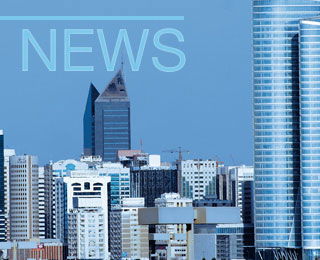Scaling up regional infrastructure projects will facilitate intra- and inter-regional trade, create integrated energy markets through regional power pools, support water resources management, and spur economic growth, says private equity leader.
A growing emphasis on opening infrastructure investment to the private sector will both catalyse African economic growth and attract substantial foreign direct investment, the founder of Africa’s largest private equity firm said yesterday at the World Economic Forum on Africa 2012 in Addis Ababa, Ethiopia.
“Africa today is where China was 30 years ago. It is a continent of 1bn consumers, with the right demographics and abundant natural resources. Governance in Africa has been the catalyst of the positive change in investor interest,” said Ahmed Heikal, Chairman and Founder of Citadel Capital, the leading private equity firm in Africa and the Middle East with US$9.5bn in investments under control.
“Africa’s share of global FDI remains small at 4.35% of global activity. The infrastructure investments necessary to support what will become the world’s largest workforce by 2040 will see this figure climb substantially in the years ahead. Economists have demonstrated that over the last 30 years, infrastructure investments accelerated the annual growth convergence rate by over 13 percent in Africa. This has attracted foreign investment that has helped create 1.6 million new jobs in Africa in the last eight years alone,” Heikal said at a discussion entitled ‘Accelerating Infrastructure Investments.’
He added, “Infrastructure spending in Africa currently clocks in at just over US$45bn a year against needs of more than US$93bn. Scaling private investment in regional infrastructure projects will help in facilitate trade and transport across national boundaries, create integrated energy markets, particularly power pools, support regional water resources management and spark national economic growth.”
Across Africa, lack of investment in rail infrastructure means that transport costs are higher than anywhere else in the world. As a result, the cost of overland transport stands at as much as 50% of the sales price of goods in landlocked countries such as Uganda, Rwanda and Malawi. Citadel Capital estimates that an efficient rail network could, in time, bring East African transport costs down by as much as 35% due to the operational and fuel efficiency of shipping by rail.
“The result of under-investment in infrastructure is clear across Africa: Hundreds of millions of citizens and businesses do not have reliable access to electricity. Our road, rail and port infrastructure is not a continent-wide network, but a patchwork of isolated national and sub-regional assets. Intra-regional trade stands at just 9% of total trade in Africa versus nearly 50% in emerging Asia, and our global exports lag far behind our potential,” Heikal said.
He pointed out that despite this stark brake on growth, six of the ten fastest growing economies in the world in the 10 years to 2010 were in Africa, and seven of the ten fastest growing in the period 2011-15 will be on this continent. He referenced IFC’s recent comments that 21 African nations were home to investable private equity opportunities in 2011 versus just one – South Africa – a decade ago.
“Our infrastructure investments are about creating solutions,” Heikal pointed out. “They are revitalising the national railway of Kenya and Uganda. They are eliminating Egypt’s reliance on diesel imports while simultaneously preventing the release of nearly 180,000 tons of sulfur dioxide each year. They are easing road congestion and reducing emissions by shifting transport off highways and onto un-used water ways and railways as part of a network that will link the Mediterranean port of Alexandria with the port of Mombasa. They are ensuring food security in South Sudan and Sudan. They are distributing natural gas and electricity to households and industry alike. They are turning waste into energy for industry. These are textbook examples of how private equity can both catalyze growth and help meet the aspirations of more than 1 billion Africans.”
Citadel Capital raised equity and debt of nearly three quarters of a billion dollars in 2011 for its 19-platform companies. The lion’s share of this sum was raised from leading international institutional investors for investment in African infrastructure, including US$234m in equity and debt raised for Rift Valley Railways (RVR), the national railway of Kenya and Uganda, as well as additional sums committed to Nile Logistics, the Egyptian Refining Company and solid-waste platform Tawazon.
A private-sector led approach to structuring infrastructure investments, the Citadel Capital Chairman emphasised, provides governments with a unique opportunity to both revitalize existing assets and build new infrastructure.
Citadel Capital was recently named the largest private equity firm in Africa by Private Equity International in its PEI 300, the annual benchmark ranking of global private equity firms, marking the fourth consecutive year that the firm has been named the largest in Africa.
